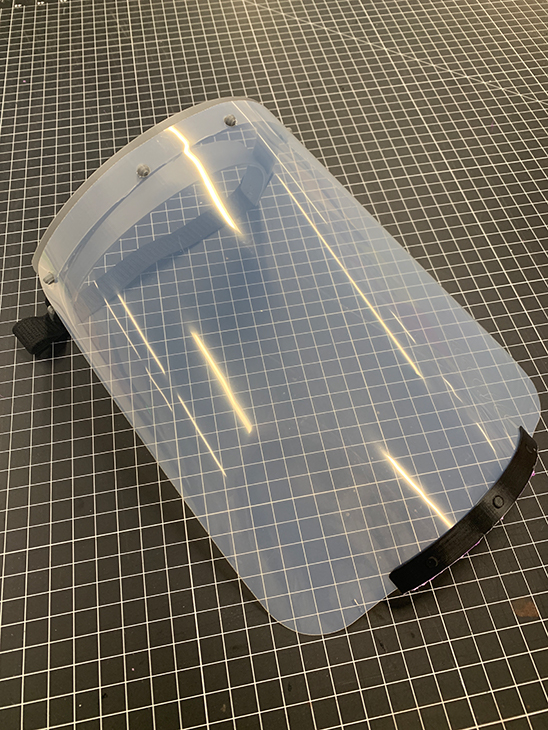Contact us
401 W. Kennedy Blvd.
Tampa, FL 33606-13490
(813) 253-3333
On any given day, Emma Quintana is asked to problem-solve on a variety of projects, from an entrepreneur’s prototype to a marketing class’s campaign materials. Emma Quintana, coordinator of UT’s Fab Lab, is making face shields for health care workers with materials from the digital fabrication lab. Photo courtesy of Quintana

Quintana is using equipment from the Fab Lab: 3D printers to create the shield frame and a laser cutter to precisely cut the clear plastic shield. Then she adds elastic to the back. Photo courtesy of Quintana
“I like how every day I don’t know what I’ll be doing,” said Quintana, coordinator of UT’s Fab Lab, a digital fabrication lab (a workshop equipped with tech-enabled tools for students in the arts to foster creativity and innovation) inside R.K. Bailey Art Studios.

Quintana is using equipment from the Fab Lab: 3D printers to create the shield frame and a laser cutter to precisely cut the clear plastic shield. Then she adds elastic to the back. Photo courtesy of Quintana

“The appreciation that I've received from the few individuals I've donated to is heartwarming,” Quintana said. “We are all doing our best for others during this time by socially isolating and modifying our daily routines, our workdays and our academic lives. I'm giving back in my own my way, but so are many others.” Photo courtesy of Quintana
Have a story idea? Contact Jamie Pilarczyk, Web Writer
Read more UT Life stories
More UT News